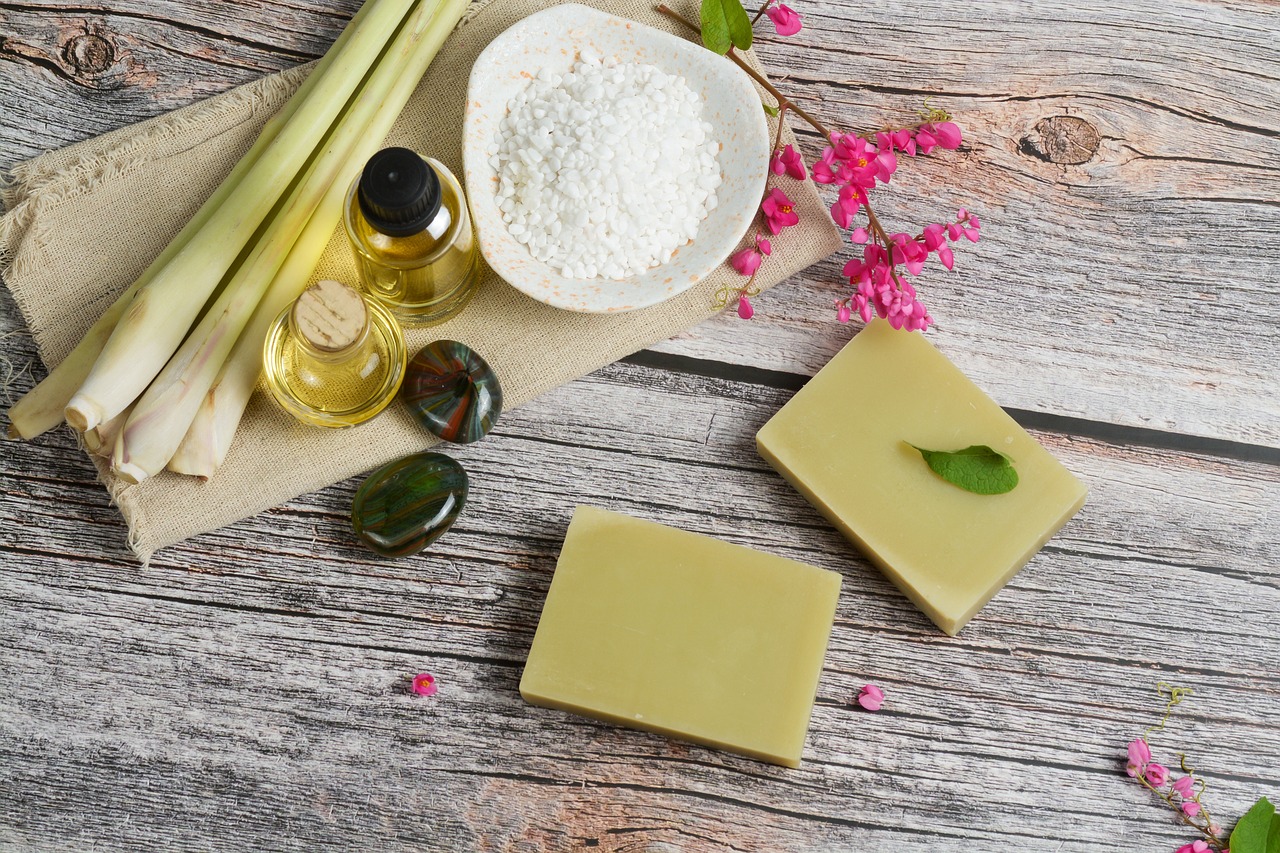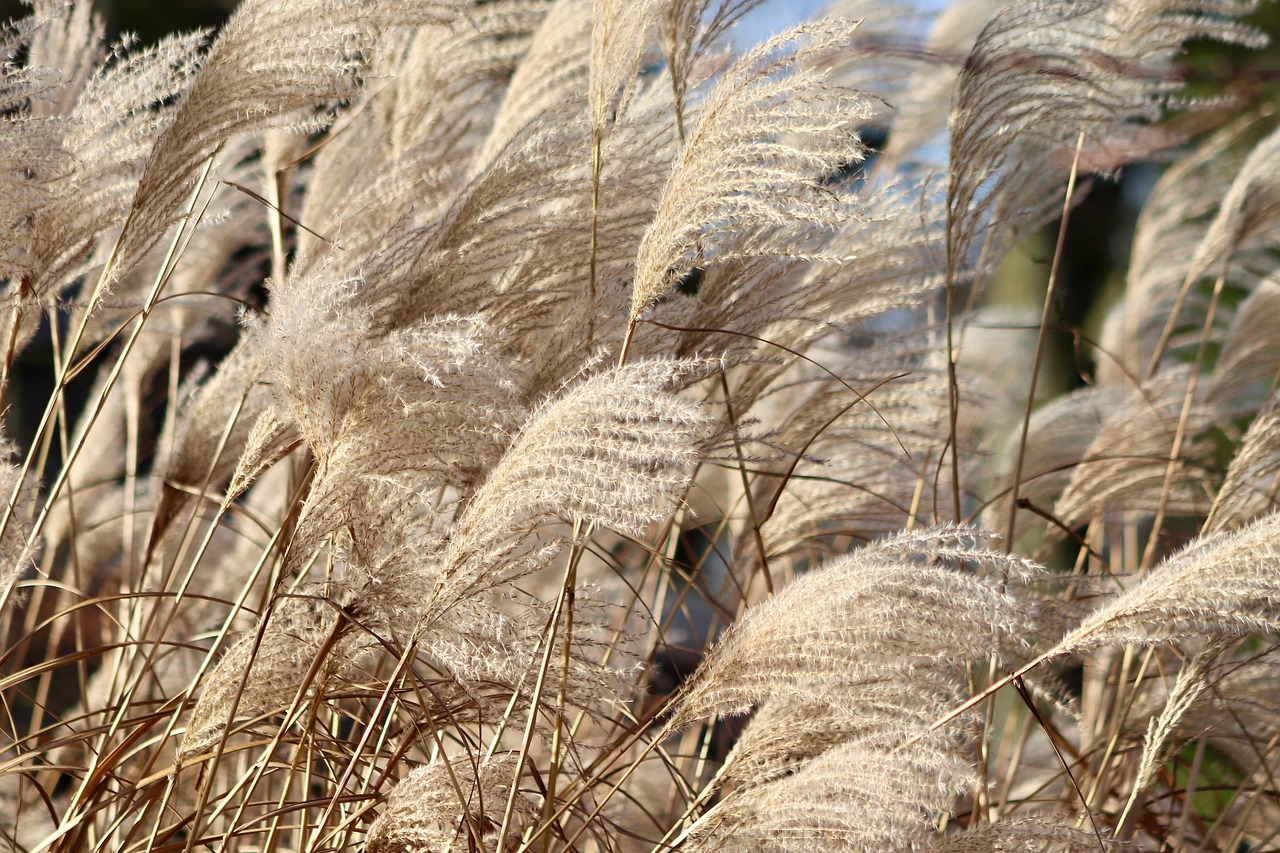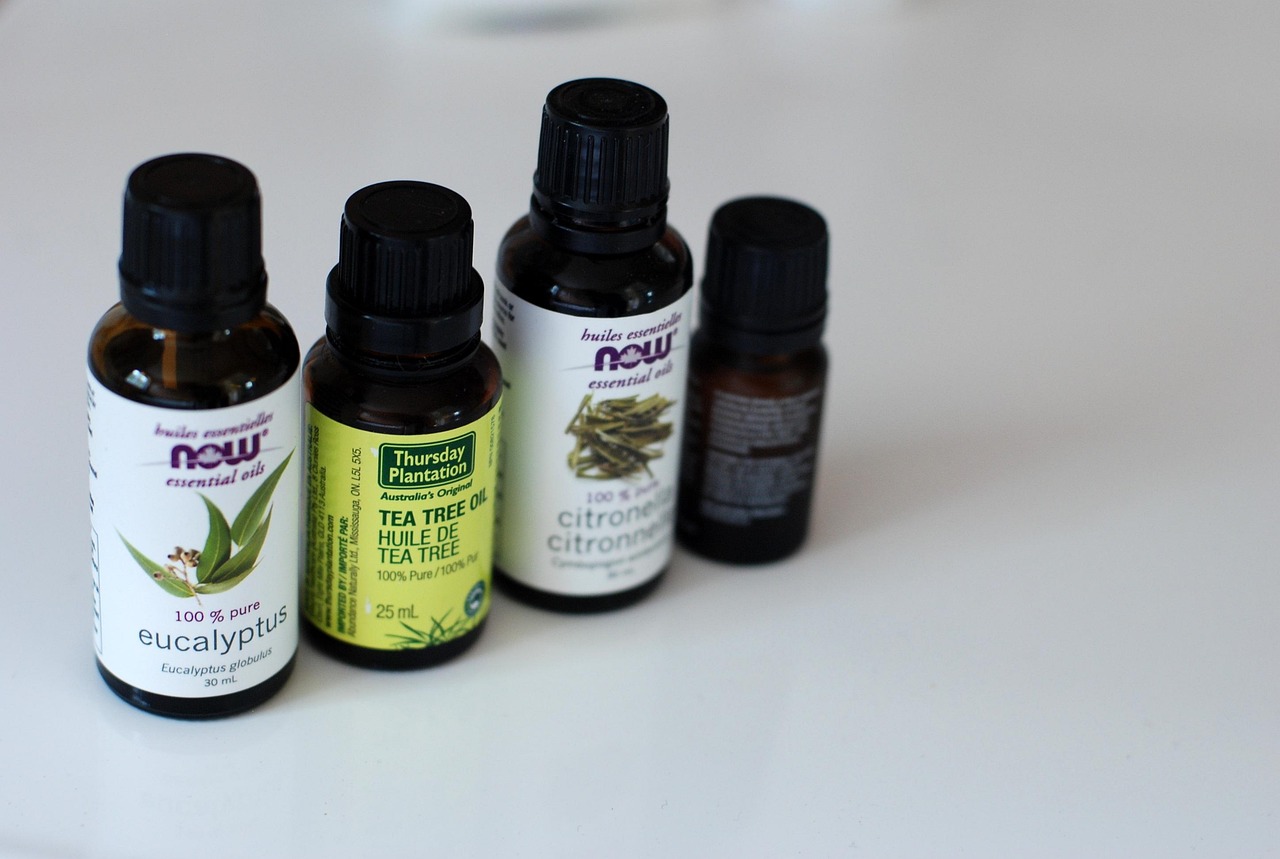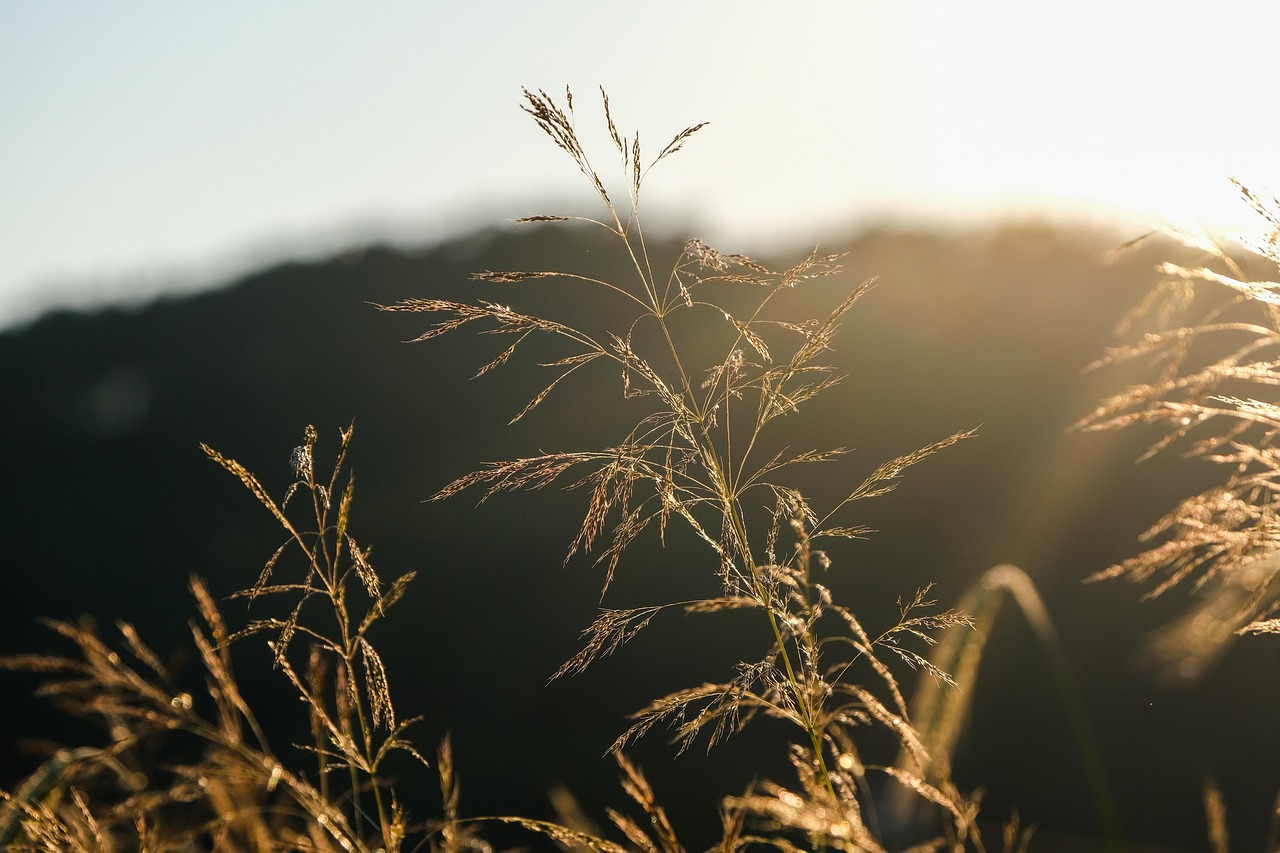Citronella grass is a perennial plant known for its strong lemon-like scent. It is primarily used to produce citronella oil, which is effective as a natural insect repellent. This grass is also valued for its culinary uses and potential health benefits.
Understanding Citronella Grass
Citronella grass, scientifically known as Cymbopogon nardus, belongs to the Poaceae family. This tropical and subtropical plant thrives in warm climates and is native to regions like Southeast Asia and Africa. It has tall, slender green stems that can grow up to 6 feet in height. The leaves are long, narrow, and have a distinct citrus aroma when crushed.

This aromatic grass is most widely recognized for its essential oil, which is extracted from the leaves and stems through steam distillation. Citronella oil is a common ingredient in candles, sprays, and lotions designed to repel mosquitoes and other insects. Beyond its repellent properties, citronella grass has culinary applications and potential medicinal benefits.
Benefits of Citronella Grass
Citronella grass offers a range of benefits that make it popular among gardeners and health enthusiasts alike. Here are some of the key advantages:
- Natural Insect Repellent: Citronella oil is known to repel mosquitoes and other pests effectively, making it a popular choice for outdoor activities.
- Aromatic Qualities: The pleasant citrus scent of citronella can help mask odors and create a refreshing atmosphere in gardens or homes.
- Culinary Uses: The leaves can be used to flavor dishes, teas, and beverages, adding a unique citrusy taste.
- Potential Health Benefits: Some studies suggest that citronella may have anti-inflammatory and antibacterial properties.
- Easy to Grow: Citronella grass is relatively low-maintenance and can thrive in various soil types.
Nutritional Content
While citronella grass is primarily known for its oil and aroma, it also contains several nutrients. Here is a table summarizing its nutritional content per 100 grams:

| Nutrient | Amount |
|---|---|
| Calories | 99 kcal |
| Carbohydrates | 22 g |
| Protein | 3.5 g |
| Fat | 0.5 g |
| Fiber | 7 g |
Growing Citronella Grass
If you are interested in cultivating citronella grass, there are several tips to consider. This plant prefers warm climates and well-drained soil. Here are some key growing tips:
- Sunlight: Citronella grass requires full sun for optimal growth. Aim for at least 6 to 8 hours of sunlight per day.
- Soil Requirements: Use loamy or sandy soil with good drainage. The pH level should ideally be between 6.0 and 7.0.
- Watering: Water the plant regularly but avoid overwatering. The soil should remain moist but not soggy.
- Fertilization: Apply a balanced fertilizer every few weeks during the growing season to promote healthy growth.
- Harvesting: You can start harvesting leaves once the plant reaches about 12 inches in height. Use sharp scissors to snip leaves as needed.
Cultivating citronella grass not only provides a natural insect repellent but also adds beauty and fragrance to your garden. With proper care, this hardy plant can flourish and yield plenty of leaves for various uses.
Citronella Grass Varieties
There are several varieties of citronella grass, each with unique characteristics. Understanding these varieties can help you choose the best option for your garden or intended use. Below are some common types of citronella grass:

- Cymbopogon nardus: Also known as Java citronella, this variety is renowned for its high oil content. It is commonly used in commercial products for insect repellent.
- Cymbopogon winterianus: Known as Sri Lankan citronella, this type is valued for its strong lemon scent and is often utilized in the perfume industry.
- Cymbopogon citratus: Commonly referred to as lemongrass, this variety is used in cooking and has similar insect-repelling properties.
Each variety has its specific uses, making it essential to select the right type based on your needs. In addition to their distinct fragrances, these grasses can also vary in height, growth rate, and climate adaptability.
Using Citronella Grass in Culinary Dishes
Citronella grass is not only beneficial for its aromatic oil but also serves as a flavorful ingredient in various culinary applications. It adds a refreshing citrus flavor to dishes. Here are some popular ways to incorporate citronella grass into your cooking:
- Teas: The leaves can be steeped in hot water to create a fragrant tea that is both refreshing and soothing.
- Soups and Stews: Chopped citronella can enhance the flavor profile of soups and stews, especially in Asian cuisine.
- Marinades: Add crushed leaves to marinades for meats, seafood, or vegetables to impart a unique taste.
- Desserts: Citronella can also be used in sweet dishes, such as sorbets or cakes, for an interesting twist.
When using citronella grass in cooking, it is best to use fresh leaves for maximum flavor. The leaves can be chopped finely or bruised to release their aromatic oils before adding them to your dish.

Health Benefits of Citronella Grass
In addition to its culinary uses, citronella grass is believed to offer various health benefits. While more research is needed to fully understand these effects, here are some potential advantages:
- Anti-inflammatory Properties: Some studies suggest that citronella may help reduce inflammation in the body.
- Antimicrobial Effects: Citronella oil has been shown to possess antibacterial and antifungal properties, making it useful for skin health.
- Stress Relief: The scent of citronella may help alleviate stress and anxiety when used in aromatherapy.
While these benefits are promising, it is important to consult with a healthcare professional before using citronella for medicinal purposes. More extensive research is needed to confirm these potential health claims.
Pest Control with Citronella Grass
The primary use of citronella grass is as a natural insect repellent. Its effectiveness against mosquitoes and other pests makes it a popular choice for outdoor living spaces. Here’s how to utilize citronella grass for pest control:
- Planting Strategically: Plant citronella grass around patios, gardens, and near entryways to deter insects naturally.
- Making Homemade Repellents: You can create sprays using citronella oil mixed with water and a carrier oil for topical application on skin.
- Using Citronella Candles: Lighting candles made with citronella oil can help keep bugs away during outdoor gatherings.
The natural properties of citronella make it an ideal alternative to chemical insect repellents. However, it is important to note that while it helps reduce the presence of pests, it may not eliminate them completely.
Environmental Benefits
Cultivating citronella grass can also contribute positively to the environment. Here are some environmental benefits associated with growing this plant:
- Air Quality Improvement: Like all plants, citronella contributes to improved air quality by absorbing carbon dioxide and releasing oxygen.
- Soil Health: Citronella grass can help prevent soil erosion with its extensive root system.
- Biodiversity Support: Growing diverse plants like citronella encourages a healthy ecosystem that supports various insects and wildlife.
By incorporating citronella grass into your garden, you not only benefit from its practical uses but also contribute positively to the environment around you.
Cultivating Citronella Grass Indoors
If you have limited outdoor space, you can successfully grow citronella grass indoors. This method allows you to enjoy its benefits without needing a garden. Here are some tips for growing citronella grass indoors:
- Container Selection: Choose a pot that is at least 12 inches deep and has good drainage holes. This will provide enough space for the roots to grow.
- Soil Type: Use a well-draining potting mix. You can create a mix by combining regular potting soil with sand or perlite to enhance drainage.
- Sunlight Requirements: Place the pot in a location that receives plenty of sunlight. A south-facing window is ideal, as it provides ample light for growth.
- Humidity Levels: Citronella grass thrives in humid conditions. To maintain humidity, consider using a humidity tray or misting the plant occasionally.
- Watering Schedule: Water the plant when the top inch of the soil feels dry. Ensure that excess water drains out of the pot to prevent root rot.
Growing citronella grass indoors not only adds greenery to your living space but also helps purify the air while providing a natural insect-repelling effect.
Harvesting and Storing Citronella Grass
Once your citronella grass is established, harvesting becomes an essential part of its care. Here’s how to effectively harvest and store the leaves:
- Timing: Harvest leaves from mature plants when they reach about 12 inches in height. Early morning is the best time to gather leaves when the oils are most concentrated.
- Cutting Technique: Use sharp scissors or garden shears to snip off the leaves at the base. Avoid pulling the leaves off, as this can damage the plant.
- Storage Options: Freshly harvested leaves can be stored in a plastic bag in the refrigerator for up to two weeks. Alternatively, you can dry the leaves by hanging them upside down in a cool, dark place.
Dried leaves can be crushed into a powder and stored in an airtight container for later use in cooking or as a natural repellent.
Common Pests and Diseases
While citronella grass is generally resilient, it can still be susceptible to certain pests and diseases. Understanding these issues will help you maintain healthy plants:
Pests
- Aphids: These small insects can cluster on the undersides of leaves, sucking sap and causing damage. Use insecticidal soap or neem oil to control them.
- Spider Mites: These tiny pests thrive in dry conditions and can lead to yellowing leaves. Increasing humidity and spraying with water can help deter them.
- Mealybugs: These pests appear as white cottony masses on stems and leaves. Remove them by wiping with a cotton swab dipped in alcohol.
Diseases
- Leaf Spot: This fungal disease leads to dark spots on leaves. Ensure good air circulation and avoid overhead watering to minimize this issue.
- Root Rot: Caused by overwatering, root rot can kill the plant. Make sure your pot has adequate drainage and only water when necessary.
Regular monitoring of your citronella grass will help catch any issues early. Prompt action can prevent minor problems from turning into significant challenges.
Utilizing Citronella Grass for Aromatherapy
The aromatic properties of citronella grass extend beyond its insect-repelling abilities. It is also used in aromatherapy for promoting relaxation and well-being. Here’s how you can use citronella for aromatherapy:
- Aromatherapy Diffusers: Add a few drops of citronella oil to a diffuser to create a calming environment. The scent may help reduce stress and improve mood.
- Scented Candles: Making your own candles with citronella oil can enhance your living space’s aroma while keeping bugs at bay.
- Bath Soaks: Incorporate citronella oil into bathwater for a refreshing experience that also acts as a natural insect deterrent.
The invigorating scent of citronella can uplift your spirits while providing a natural solution for pest control in your home.
Cultural Significance of Citronella Grass
In many cultures around the world, citronella grass holds significant value beyond its practical uses. Here are some cultural aspects associated with this versatile plant:
- Traditional Medicine: In various traditional practices, citronella has been used to treat ailments such as colds, headaches, and digestive issues.
- Culinary Traditions: In Southeast Asian cuisines, particularly Thai and Vietnamese, citronella is a staple ingredient that adds flavor to numerous dishes.
- Cultural Symbolism: The refreshing scent of citronella is often associated with cleanliness and protection against negative energies in some cultures.
This cultural significance reinforces the importance of citronella grass in both practical and traditional contexts, highlighting its versatility and value across different societies.
Additional Uses of Citronella Grass
Beyond its well-known benefits, citronella grass can be utilized in various innovative ways that enhance both daily living and environmental sustainability. Here are some additional uses:
- Natural Cleaning Products: The antibacterial properties of citronella make it an excellent ingredient for homemade cleaning products. Mixing citronella oil with vinegar or baking soda can create effective, non-toxic cleaners.
- Potpourri and Sachets: Dried citronella leaves can be used in potpourri or sachets to infuse a pleasant scent into drawers and closets while also repelling insects.
- Gardening Companion Plant: Citronella grass can serve as a companion plant for other crops. Its strong scent helps deter pests that might harm neighboring plants.
- Essential Oil Blends: Citronella oil blends well with other essential oils, such as lavender or eucalyptus, creating unique aromatherapy blends for relaxation and wellness.
These additional uses of citronella grass not only highlight its versatility but also encourage sustainable practices in everyday life.
Citronella Grass in Sustainable Gardening
As the world increasingly focuses on sustainability, growing citronella grass fits well within eco-friendly gardening practices. Here are some principles to consider:
- Water Conservation: Citronella grass is drought-resistant once established, making it a great option for water-efficient gardens.
- Organic Pest Control: By using citronella as a natural repellent, you can reduce reliance on chemical pesticides, promoting a healthier garden ecosystem.
- Biodiversity Promotion: Incorporating a variety of plants, including citronella, supports local biodiversity and attracts beneficial insects that can help pollinate your garden.
Sustainable gardening with citronella grass not only benefits your immediate environment but also contributes to broader ecological health.
Preparing for Seasonal Changes
As seasons change, it is important to adapt your care routine for citronella grass to ensure its continued growth and vitality. Here are some seasonal tips:
- Spring: This is the ideal time to plant new citronella grass or divide existing plants. Fertilize with a balanced fertilizer to promote growth during the active season.
- Summer: Ensure your plants receive adequate water during hot months. Regular harvesting encourages bushier growth and prevents the grass from becoming leggy.
- Fall: As temperatures drop, consider bringing potted citronella indoors if you live in cooler climates. Reduce watering as growth slows down.
- Winter: Protect outdoor plants from frost by covering them or bringing them indoors. If indoors, maintain humidity levels to keep the plant healthy.
Adapting your care routine based on seasonal changes ensures your citronella grass remains healthy and productive throughout the year.
Conclusion
Citronella grass is a remarkable plant that offers numerous benefits, ranging from its natural insect-repelling properties to its culinary and medicinal uses. Its versatility makes it an integral addition to any garden, whether cultivated outdoors or indoors. The cultural significance and sustainable gardening practices associated with citronella further enhance its appeal.
By understanding how to grow, maintain, and utilize citronella grass effectively, individuals can enjoy not only its practical applications but also its beauty and fragrance. Additionally, adopting sustainable gardening principles contributes to environmental health while promoting biodiversity. This multifaceted herb exemplifies how nature can provide solutions that benefit both people and the planet.
Incorporating citronella grass into your life can lead to a more natural, healthy lifestyle while enhancing your living space’s ambiance. Whether you seek an organic pest control method, a flavorful culinary ingredient, or simply a beautiful plant to enjoy, citronella grass is an excellent choice.
